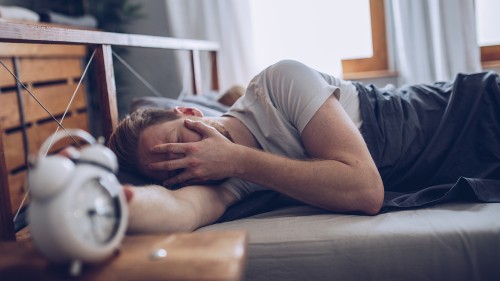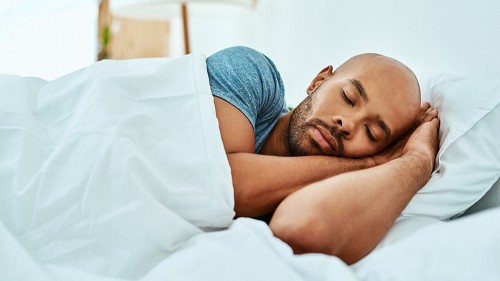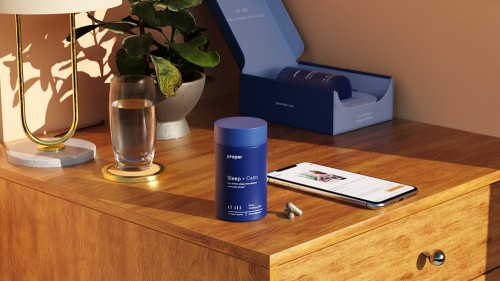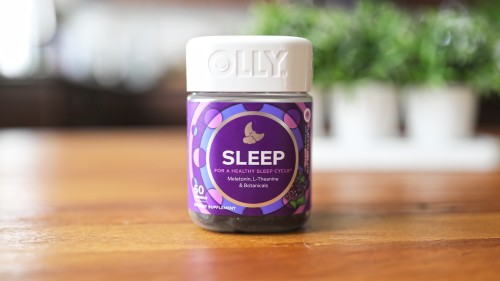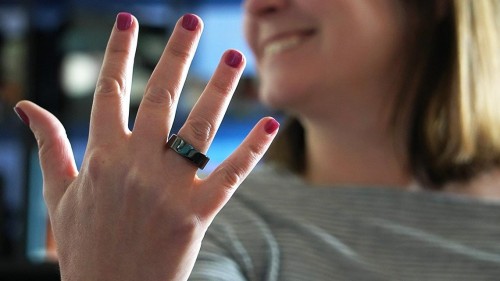WellnessVerge is reader-supported. We may earn a commission when you make a purchase through the links on this page. Learn more about our process here.
Relaxium Sleep Review: Works for Many, But Similar Products Cost Less
Last Updated on November 16, 2023
Medically Reviewed by Anthony Dugarte, MD
Many consumers report that Relaxium provided an effective, drug-free solution to their sleep problems. However, there are plenty of similar products for a better price.

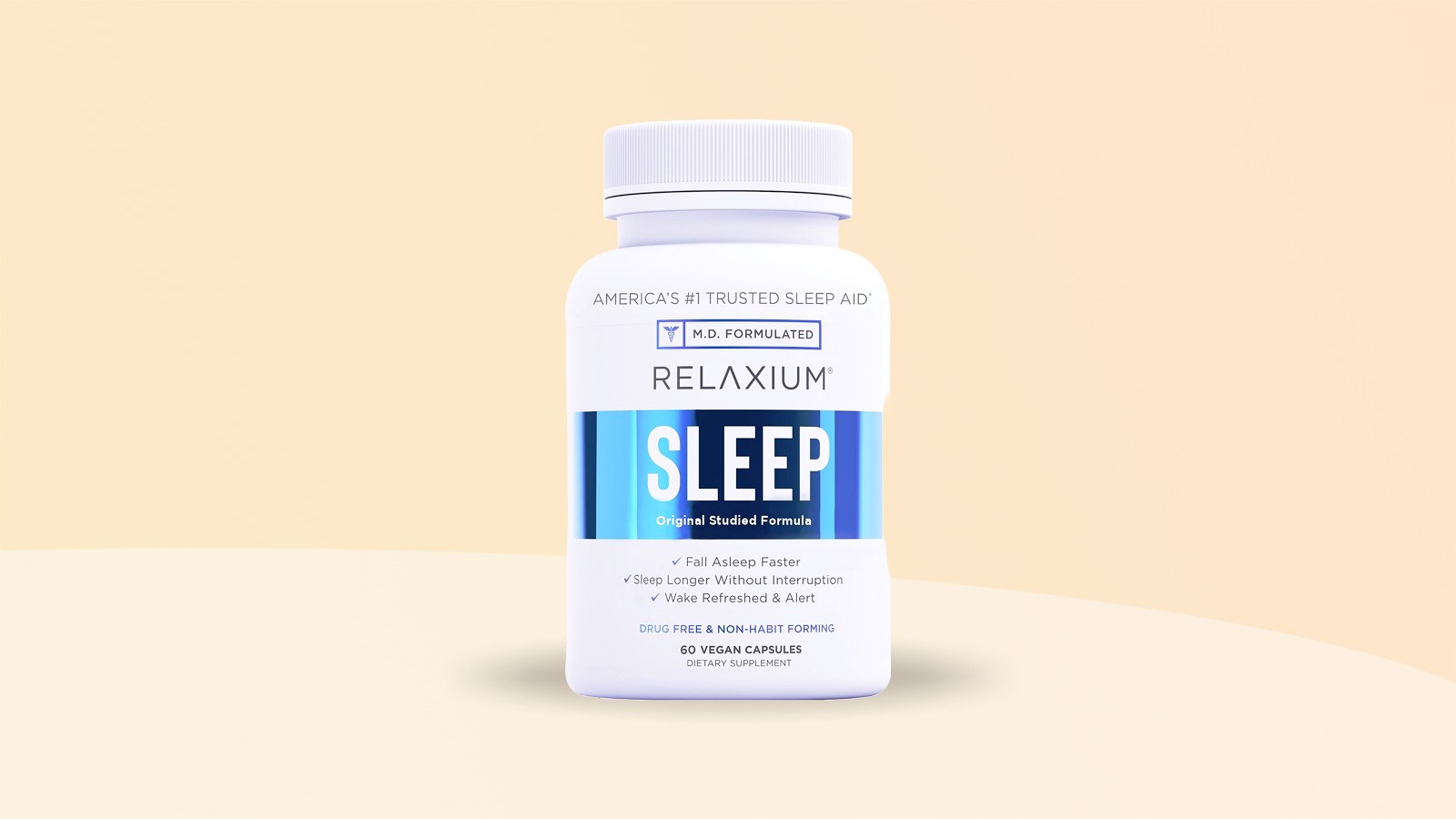
Key Takeaways (TL;DR)
- Relaxum uses safe and drug-free ingredients, most of which have been studied individually and show a degree of supporting sleep quality and relaxation.
- This supplement contains 5 mg of Melatonin, one of the most well-studied ingredients in this formulation, which may help support sleep quality for some.
- While these ingredients may effectively promote sleep, no research shows they can address chronic insomnia.
- According to 500 Amazon reviews we analyzed, Relaxium may not work for everybody. Many customers stated that it helped improve their sleep quality, while others did not experience any benefits. (More on that below.)
What We Liked About Relaxium
- Most of the ingredients help support relaxation and sleep
- Uses natural and safe ingredients
- Contains a reasonably good starting dose of melatonin
- Formulated by a neurosurgeon
Important Considerations
- More research is still needed on whether the ingredients used in this supplement can treat chronic insomnia
- The clinical trial done on Relaxium was very short, small in participant size, and company-funded
- The company was sued through a class-action lawsuit for allegedly making false marketing claims. The company has since settled and addressed the issues
- Customers have complained about Relaxium’s billing practices, which the company also addressed
- More viable alternatives available, which we discuss below
Relaxium Sleep at a Glance
We all enjoy a good night’s rest and already know that excellent sleep helps us appreciate the quality of life throughout the day and be more productive. Unfortunately, according to the CDC, nearly 1 in 3 American adults report not getting enough sleep, which should be between 7–9 hours each night. A lack of sleep may often be linked with bigger health problems. (1)
Oftentimes, people turn to natural over-the-counter sleep aids to help them fall asleep faster and stay asleep longer, which may be helpful for some people who aren’t necessarily experiencing severe insomnia. However, according to the American Academy of Sleep Medicine, it is no longer advised to take OTC valerian root or melatonin to treat insomnia. (2)
Nonetheless, that is why natural dietary supplements enter the market. Developed by neurosurgeon Dr. Eric Ciliberti, M.D., Relaxium is a natural sleep aid intended to support your sleep using 8 non-habit-forming ingredients that promote relaxation and help restore the body’s natural sleep cycles.
The company recommends taking two capsules 30 minutes before bedtime, which contains 5 mg of melatonin. Studies show that melatonin doses as low as 1 mg can promote sleep. (3) You may want to start with just one capsule (which contains 2.5 mg of melatonin). Adjusting the dose allows you to find the minimum adequate amount that works for your sleep needs.
How to Purchase Relaxium
Relaxium is available on the brand’s website as a one-time purchase or via a subscription model. The more you buy, the more you save, especially with a subscription. However, if you decide to try Relaxium, we recommend buying it directly from their storefront on Amazon, as it’s cheaper, and you would be dealing directly with Amazon’s trusted return policy and billing.
In fact, Relaxium was previously sued through a class action lawsuit due to consumers claiming they felt misled by false advertising claims and billing practices. The lawsuit has been settled, and the company rectified the situation.
The cost per bottle on Amazon is $27 with a subscription or $30 for a one-time purchase, which is significantly less than the amount listed on Relaxium’s main website. For some perspective, buying one bottle directly on the brand’s website would cost you $45 as a one-time purchase or $40 via a subscription. To get the cost down to $27 per bottle on Relaxium’s site, you must subscribe and buy six bottles at a time by spending about $162 upfront.
Are the Ingredients Effective?
The individual ingredients used in Relaxium’s unique formulation have support and research indicating that they can help support sleep and promote relaxation. However, most of the research concluded that while safe, the ingredients may not be effective for those experiencing insomnia or other diagnosed sleep disorders.
If you have tried various OTC options and found they did not work, your sleep concerns must be addressed with your medical provider.
In addition, the company states that Relaxium’s formulation has been studied as a whole. Still, there was no link to this study on its website. We were able to locate that trial in a different medical journal, however.
It did show that 20 participants who took Relaxium for two weeks were able to fall asleep faster, experienced improved sleep quality, and were able to wake up more easily versus the 17 individuals who took a placebo. Furthermore, those who experienced overall sleep improvement reported feeling more alert and focused during the day.
However, while this study displayed favorable results, the trial lasted only two weeks, and the number of people taking this supplement was insignificant. It’s unknown how well this supplement may sustain its benefits long term.
To help you understand each ingredient better, below we’ll explain what they are, their role, and sleep-related research behind them.
Melatonin
Melatonin is a hormone that regulates our natural “sleep-wake” cycle. However, some of us do not produce enough.
A large 2013 review of 19 studies done on melatonin showed that it produced a modest improvement in sleep with a low risk of side effects. Still, according to the American Academy of Sleep Medicine, there is not enough evidence on the effectiveness of melatonin for chronic insomnia. The researchers did note that melatonin’s effectiveness may diminish the longer you take it. (4, 5)
Overall, studies show that melatonin doses of 1 mg to 6 mg promote sleep, especially in older adults. (3)
Note from a Dietitian: Out of all of the ingredients in this product, I would be most confident to recommend melatonin on its own, given the larger amount of research and its stronger safety profile. I have had clients who take melatonin regularly. Some say it helps with their sleep, but others are unsure if it does anything.
Magnesium
Magnesium is an essential mineral that serves many bodily functions and may improve sleep quality. (6)
Magnesium may help regulate gamma-aminobutyric (GABA), which helps promote calmness and relaxation in the nervous system. (7) Also, magnesium helps support the melatonin hormone in our bodies, which helps regulate circadian rhythms. Studies show that co-supplementation with magnesium and melatonin may support sleep quality. (8)
However, the studies on magnesium’s effect on sleep have been mixed over the years and were done at higher doses than the 100 mg in Relaxium Sleep.
L-Tryptophan
L-tryptophan is an amino acid (protein-building block) that helps the body make serotonin and melatonin, two essential hormones involved in sleep health.
Small studies found that those who ate tryptophan-rich breakfast had higher melatonin levels and experienced improved sleep quality and duration. (9, 10)
The high tryptophan breakfast in the studies contained 476 milligrams of this ingredient, close to the amount in Relaxium sleep of 500 mg.
Valerest
This blend contains a combination of valerian root and hops. Valerian root is a popular herb supplement often used to promote relaxation and better sleep. Studies have been mixed over the years with promising outcomes and no effect.
One recent study showed that valerian root supplementation helped improve various aspects of sleep in young adults with mild insomnia. Such areas include sleep quality, latency, efficiency, and total sleep time. (11)
Other reviews of studies over the years revealed that although valerian root is a safe and possibly effective option for promoting sleep, researchers concluded Valerian contains unstable compounds that can break down over time and degrade during storage. Companies may need better quality control, like improved standardization methods and revised expiration dates for valerian supplements. (12)
Hops are flowers present in beer that are said to have a sedative effect. In one small 1-week animal study, sleep was improved with 2 mg of hops per day. (13)
Another small human showed improved nighttime sleep by consuming hops present in non-alcoholic beer. (14)
Ashwagandha
Ashwagandha is an adaptogen — an herb that can provide benefits for improving sleep, according to studies.
For example, one 2019 study showed that taking 600 mg of ashwagandha daily may help reduce insomnia. Another 2020 study showed that taking 600 mg of ashwagandha daily for 12 weeks improved sleep quality. (15, 16)
Relaxium contains 120 mg of ashwagandha, which is significantly less than what was used in the studies. However, it may still be effective, considering this formulation has other helpful ingredients that synergistically work together.
GABA
Gamma-aminobutyric acid (GABA) is a neurotransmitter, a chemical messenger that sends signals to and from the brain to other parts of the body. When GABA receptors are activated, it is said to promote sleep.
A 2020 systematic review showed sleep improvements in those taking 100–300 mg daily doses. (17) The study authors concluded that more research is still needed to confirm the relationship between GABA and sleep health. Relaxium contains 100 mg of GABA.
Chamomile
Chamomile is an herb that has the potential to promote relaxation and help with sleep. However, the results have been mixed over the years.
For example, a 2017 study of elderly adults found that taking chamomile significantly improved sleep. (18) However, another small 2011 study found no difference in sleep quality in those taking 270 mg of chamomile twice a day. (19)
Other studies have pointed out that while chamomile is safe and effective for promoting sleep quality, no research shows it can benefit those with insomnia. (20)
Passionflower
Passionflower is an herb that may help with sleep disturbances, possibly by boosting GABA levels that can calm your mind. A 2011 randomized trial showed short-term sleep improvements in those drinking passionflower tea for seven days. (21)
However, more studies are needed to determine the optimal dose and whether the sleep benefits of passionflower would continue after seven days.
Is Relaxium Safe?
According to the studies we reviewed for each ingredient in Relaxium, no significant side effects or safety concerns were reported.
The most common side effects of the ingredients present include sleepiness and nausea, particularly with melatonin if taken for longer periods of time. (22)
According to the NIH, passionflower may cause some people drowsiness, confusion, and uncoordinated movement. However, this was primarily found in much higher doses than what Relaxium contains. (23)
Before starting this supplement, speak to your doctor to review your medical history, medications, and particular sleep issues.
Key Takeaways from Customer Reviews
As we mentioned, one of the chief drawbacks of Relaxium is the lack of larger clinical studies of its formula. This means that there is not a lot of solid evidence that we can use to assess the safety and effectiveness of the combination and dosages of its ingredients.
However, this product has been on the market for quite some time, and there are thousands of customer reviews on many platforms that we can use to assess the effects of Relaxium on a broader population.
To that aim, we have analyzed 500 customer reviews, and here are our takeaways:
When Was Relaxium Helpful
Consumers reported the following sleep issues and problems that led them to try Relaxium and the type of relief that they found:
- Difficulty falling asleep: Many consumers mention Relaxium helped them fall asleep faster.
- Waking up frequently: Some customers said they slept through the night more consistently and woke up less often.
- Lack of sleep continuity: Some noted improved sleep duration and ability to sleep more hours without interruption.
- Inability to sleep through the night: Numerous reviewers stated that Relaxium helped them sleep undisturbed for 6–8 hours.
- Insomnia issues: Consumers mentioning chronic insomnia said Relaxium helped significantly.
- Lack of restful sleep: Customers reported waking up feeling more refreshed and energized after using Relaxium. Reviewers said they felt better rested with more mental clarity in the morning.
- Trouble adjusting to new time zones: Reviews from travelers said it helped adapt to time changes faster.
- Side effects from sleep medications: Some preferred Relaxium for avoiding grogginess and other side effects of medications.
- Stress and anxiety: Customers said it helped calm their thoughts, leading to better quality sleep.
Patterns in Positive Reviews
- Helps many users fall asleep faster and stay asleep longer. Many reviewers say it “works” or “really works” for them. Phrases like “helps me sleep” and “sleep all night” are common.
- Many users said that Relaxium helps them wake up feeling more rested.
- Many users reported that Relaxium is non-habit forming.
- Natural ingredients are seen as a plus by many. Many users feel that Relaxium is a good natural alternative to prescription sleep medication.
- An average 3.4-star rating shows general customer satisfaction.
- Generally, users felt that Relaxium provides good value for money.
Patterns in Critical Reviews
- Doesn’t work consistently for some users. Some said it provided some help or worked at first but wasn’t consistent. (The loss of response to melatonin is a known occurrence. It may be remedied, in some cases, by lowering the dose.)
- Some felt that the claims that the brand makes were exaggerated. Some also said that Relaxium didn’t work as described for them.
- Some said that Relaxium did not leave them feeling refreshed in the morning.
- Some users see Subscription costs as high for inconsistent results with the product.
- A small percentage of users (about 3%) reported mild side effects like headache, nausea, dizziness, and grogginess. The reviews indicate these side effects are temporary and dissipate as the body adjusts to the supplement.
- Many users reported difficulty canceling recurring orders and surprised billing charges.
- Slow customer service response time.
In Summary
Relaxium delivers on its claimed sleep benefits for many users. However, some people did not experience or feel the benefits were inconsistent. Based on these patterns, there is a high chance that the product may work for you. However, it is not guaranteed that it will work for everyone or that the results will be consistent with regular use. Still, it is worth a try for some people with sleep issues.
Three percent of reviewers reported mild side effects, so there is a slight chance you may also experience them.
Before subscribing and committing to Relaxium long-term, we recommend buying a single bottle to see how your body responds.
Comparison to Alternatives
Relaxium Sleep combines eight commonly used natural ingredients in doses unique from other brands. However, quite a few products contain similar ingredients promoting the same benefits of relaxation and sleep. Here is how Relaxium compares to several drug-free, multi-ingredient sleep supplements from well-known brands:
|
Relaxium |
Nature’s Bounty Sleep3 + Stress Support |
Nature Made Wellblends Sleep Longer |
Swanson Sleep Essentials |
|
|---|---|---|---|---|
|
Melatonin per Serving |
5 mg |
10 mg |
10 mg |
3 mg |
|
Other Ingredients |
Magnesium, L-tryptophan, Valerest (valerian root extract and hops), ashwagandha extract, GABA, chamomile, passionflower |
GABA, ashwagandha extract |
Calcium, L-theanine, GABA |
Calcium, magnesium, valerian root, chamomile, hops flower, skullcap extract, L-Taurine, passionflower, GABA |
|
Dosage |
2 capsules |
1 tablet |
1 tablet |
1 capsule |
|
Cost per Serving |
$0.99 |
$0.35 |
$0.57 |
$0.07 |
|
Price |
$29.99* for 30 servings |
$19.70 for 56 servings |
$19.99 for 35 servings |
$8.49 for 120 servings |
|
Notable Features |
Tri-layer tablets with triple-action time-release technology |
Tri-layer time-release tablet |
||
|
Amazon Rating |
3.3 based on 17,500+ ratings |
4.3 based on 4,500+ ratings |
4.2 based on 890+ ratings |
4.6 based on 230+ ratings |
*For this comparison of Relaxium, we used the regular price on Amazon.
Choosing between these brands:
There is not a lot of solid clinical data on any of these products that we can use to determine if one is more effective than the other. Still:
- If your choice comes down to price, the other three brands are meaningfully less expensive than Relaxium, especially Swanson.
- If you want to pick based on brand reputation, the other three brands are well-established with a long history and track record, something that Relaxium lacks for now.
- And if you want the most effective product for you, it may come down to trial and error. Each person is unique and may respond better to one formulation than the other.
Making Your Own Stack (for DIY Lovers)
Another alternative is making your own stack using the same ingredients found in Relaxium. We calculated what it would cost to buy the same eight ingredients from Swanson in similar doses, and it came out to $22.50 for a 30-day supply.
This is about one-fourth cheaper than the price of Relaxium and is contrary to the claims made on Relaxium’s website that “if you purchased all of the ingredients found in Relaxium separately, you’d be paying 5 times more.”
However, the benefit of making your own stack is not only about the price. You can do your own research on these ingredients and customize each dosage. The obvious downside is the need to swallow eight pills instead of two, so the convenience that Relaxium offers is well worth the price.
Trying a Melatonin Single-ingredient Supplement
Lastly, consider using a single-ingredient Melatonin supplement as an alternative to Relaxium. It will be cheaper and allow you to start with the lower dose of 1 mg to 3 mg of melatonin to see if it would be effective. Taking more melatonin than necessary (5 mg to 10 mg) may make you groggy and lead to other side effects.
Our recommendations include:
- For 3 mg: NatureMade Melatonin (3 mg), which has earned a USP seal, indicating a high-quality supplement.
- For 1 mg: Nature’s Bounty and Swanson both make a 1 mg version of melatonin that will cost you $0.03 per serving.
At WellnessVerge, we only use reputable sources, including peer-reviewed medical journals and well-respected academic institutions.
- Sleep and Sleep Disorders | CDC:
https://www.cdc.gov/sleep/index.html - Clinical Practice Guideline for the Pharmacologic Treatment of Chronic Insomnia in Adults: An American Academy of Sleep Medicine Clinical Practice Guideline:
https://jcsm.aasm.org/doi/10.5664/jcsm.6470 - Optimal Melatonin Dose in Older Adults: A Clinical Review of the Literature - PubMed:
https://pubmed.ncbi.nlm.nih.gov/31383052 - Meta-Analysis: Melatonin for the Treatment of Primary Sleep Disorders:
https://www.ncbi.nlm.nih.gov/pmc/articles/PMC3656905/ - Melatonin: What You Need To Know:
https://www.nccih.nih.gov/health/melatonin-what-you-need-to-know - The effect of magnesium supplementation on primary insomnia in elderly: A double-blind placebo-controlled clinical trial:
https://pubmed.ncbi.nlm.nih.gov/23853635/ - Magnesium in neuroses and neuroticism - Magnesium in the Central Nervous System - NCBI Bookshelf:
https://www.ncbi.nlm.nih.gov/books/NBK507254 - Metabolic and hormonal effects of melatonin and/or magnesium supplementation in women with polycystic ovary syndrome: a randomized, double-blind, placebo-controlled trial | Nutrition & Metabolism | Full Text:
https://nutritionandmetabolism.biomedcentral.com/articles/10.1186/s12986-021-00586-9 - Tryptophan-enriched cereal intake improves nocturnal sleep, melatonin, serotonin, and total antioxidant capacity levels and mood in elderly humans:
https://pubmed.ncbi.nlm.nih.gov/22622709/ - Effects of tryptophan-rich breakfast and light exposure during the daytime on melatonin secretion at night:
https://pubmed.ncbi.nlm.nih.gov/25407790/ - Standardized Extract of Valeriana officinalis Improves Overall Sleep Quality in Human Subjects with Sleep Complaints: A Randomized, Double-Blind, Placebo-Controlled, Clinical Study - PubMed:
https://pubmed.ncbi.nlm.nih.gov/37899385/ - Valerian Root in Treating Sleep Problems and Associated Disorders—A Systematic Review and Meta-Analysis - PMC:
https://www.ncbi.nlm.nih.gov/pmc/articles/PMC7585905 - The sedative effects of hops (Humulus lupulus), a component of beer, on the activity/rest rhythm:
https://pubmed.ncbi.nlm.nih.gov/22849837/ - The Sedative Effect of Non-Alcoholic Beer in Healthy Female Nurses:
https://www.ncbi.nlm.nih.gov/pmc/articles/PMC3399866/ - Efficacy and Safety of Ashwagandha (Withania somnifera) Root Extract in Insomnia and Anxiety: A Double-blind, Randomized, Placebo-controlled Study:
https://www.ncbi.nlm.nih.gov/pmc/articles/PMC6827862/ - Efficacy and Tolerability of Ashwagandha Root Extract in the Elderly for Improvement of General Well-being and Sleep: A Prospective, Randomized, Double-blind, Placebo-controlled Study:
https://www.ncbi.nlm.nih.gov/pmc/articles/PMC7096075/ - Effects of Oral Gamma-Aminobutyric Acid (GABA) Administration on Stress and Sleep in Humans: A Systematic Review:
https://www.ncbi.nlm.nih.gov/pmc/articles/PMC7527439/ - The effects of chamomile extract on sleep quality among elderly people: A clinical trial:
https://www.sciencedirect.com/science/article/abs/pii/S0965229917302601 - Preliminary examination of the efficacy and safety of a standardized chamomile extract for chronic primary insomnia: A randomized placebo-controlled pilot study:
https://link.springer.com/article/10.1186/1472-6882-11-78 - Therapeutic efficacy and safety of chamomile for state anxiety, generalized anxiety disorder, insomnia, and sleep quality: A systematic review and meta-analysis of randomized trials and quasi-randomized trials - PubMed:
https://pubmed.ncbi.nlm.nih.gov/31006899/ - A double-blind, placebo-controlled investigation of the effects of Passiflora incarnata (passionflower) herbal tea on subjective sleep quality:
https://pubmed.ncbi.nlm.nih.gov/21294203/ - The Safety of Melatonin in Humans:
https://link.springer.com/article/10.1007/s40261-015-0368-5 - Passionflower:
https://www.nccih.nih.gov/health/passionflower

